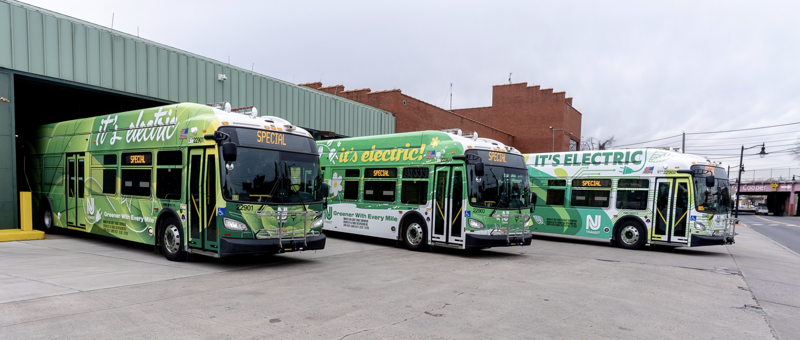Voters will decide on $59.2 billion in dedicated, multi-year funding for public transportation across the country.
The Center for Transportation Excellence is tracking Public Transit Measures on ballots. So far, 26 ballot measures this year have been approved, leaving voters to decide on the remaining measures totaling billions in public transportation funding through various forms of tax increases.
CFTE is a project of the American Public Transportation Association. According to its website, CFTE tracks and analyzes public transportation ballot measures nationwide.
“Presidential election years typically see high numbers of transit measures on the ballot,” said President and CEO Paul P. Skoutelas in an email to The Center Square. “Already this year, voters have approved 26 out of 27 transit measures, demonstrating strong public support for investing in mobility solutions. On Nov. 5, communities across America will vote on approximately $59 billion in dedicated, multi-year transit funding through 21 ballot measures. These initiatives are more than funding decisions – they’re investments in economic opportunity, sustainability, and quality of life.”
Twenty-six of the 48 ballot measures in 2024 have already been approved.
Skoutelas said, “Local ballot measures provide the stable, dedicated funding that allows transit agencies to plan confidently for the future. As communities prepare to vote on these critical initiatives, APTA is encouraging voters to consider how these investments will strengthen their regions for decades to come.”
The other ballot measures are still to be decided on Nov. 5, like the one in Maricopa County, Arizona, voters will choose to extend the half-cent sales tax measure to support public transportation for 20 years, which would take effect Jan. 1, 2026. The total transit revenue is $8.9 billion.
Flagstaff, Ariz., voters will vote to increase the current transit tax from 20 cents per $100, extending it to 2040.
Colorado’s Denver Regional Transportation District could face revenue limits of $640 million, or half of the district’s annual revenue unless ballot question 7A passes. If passed, the district would be allowed to keep anywhere from $50 million to $60 million annually instead of refunding that to taxpayers.
Cobb County, Ga., voters will decide to fund various forms of transportation through a 1% sales tax from April 1, 2025, through March 31, 2055. The total transit revenue is $10.7 billion.
Voters in Gwinnett, Ga., will decide on a 1% sales tax for 30 years, funding up to 75 transit projects. The total transit revenue is $17 billion.
Chelan, Wash., residents will vote on a sales tax increase from 8.4% to 8.7% to fund transportation. While in Seattle, Wash., the eight-year $1.55 billion transportation levy will use property taxes for various transit projects.
Voters in Nashville will decide on a half-cent sales tax increase to fund several transit-related projects. This tax would fund 46% of the city’s accelerated expansion projects.
Horry County, S.C., voters will look at a 1% sales tax that will be used for the operation of mass transit services. Horry is home to tourist destination Myrtle Beach.







